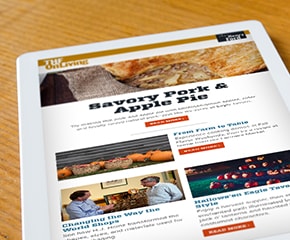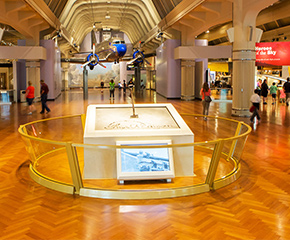1915 Brewster Town Landaulet
Add to SetSummary
Brewster & Company had built elegant horse-drawn carriages since the early 1800s. When Brewster finally began building automobiles in 1915, they looked like carriages. Chauffeurs dealt with the 20th-century auto technology -- a quiet 55-horsepower engine, an electric starter, and electric lights -- while owners rode in 19th-century carriage comfort. Tradition eventually lost out to the rush of modernity, and Brewsters began to look like cars.
Brewster & Company had built elegant horse-drawn carriages since the early 1800s. When Brewster finally began building automobiles in 1915, they looked like carriages. Chauffeurs dealt with the 20th-century auto technology -- a quiet 55-horsepower engine, an electric starter, and electric lights -- while owners rode in 19th-century carriage comfort. Tradition eventually lost out to the rush of modernity, and Brewsters began to look like cars.
Artifact
Automobile
Date Made
1915
Creators
Place of Creation
Location
Not on exhibit to the public.
Object ID
41.40.1
Credit
From the Collections of The Henry Ford. Gift of Vernon C. Brown.
Material
Steel (Alloy)
Metal
Wood (Plant Material)
Glass (Material)
Leather
Color
Dark Red
Black (Color)
Red
Dimensions
Height: 82.5 in
Width: 66 in
Length: 173 in
Wheelbase: 125 in
Weight: 4150 lbs
Inscriptions
Monogram on doors: VCB 2 plates on front floor marked: BREWSTER & CO. / NEW YORK Hubs and radiator front marked: BREWSTER & CO. NEW YORK Plate inside hood marked: BREWSTER & CO. / NEW YORK / CHASSIS NO. 41019
Specifications
Make & Model: 1915 Brewster town landaulet
Maker: Brewster & Company, New York, New York
Engine: inline-4, sleeve valves, 276 cubic inches
Transmission: 3-speed manual
Height: 82.5 inches
Wheelbase: 125 inches
Width: 66 inches
Overall length: 173 inches
Weight: 4150 pounds
Horsepower: 55
Pounds per horsepower: 75.5
Price: $7,600
Average 1915 wage: $633 per year
Time you'd work to buy this car: about 12 years







